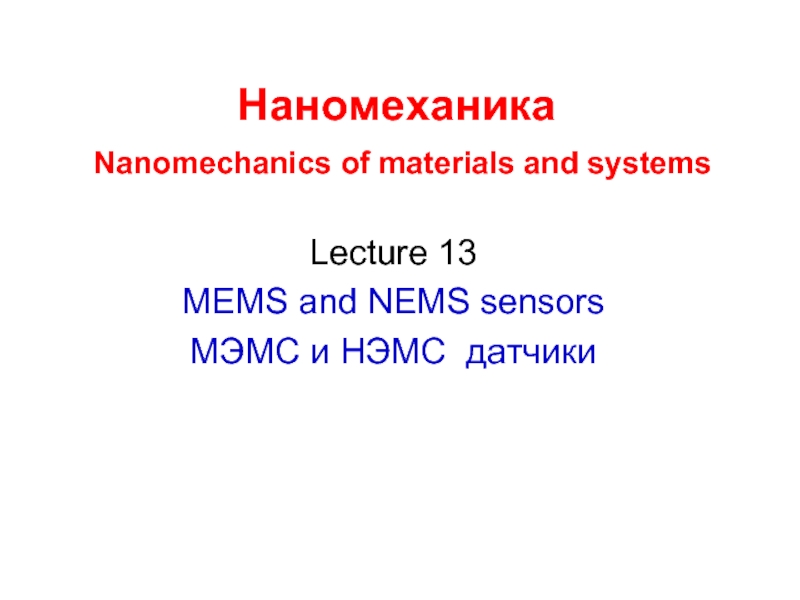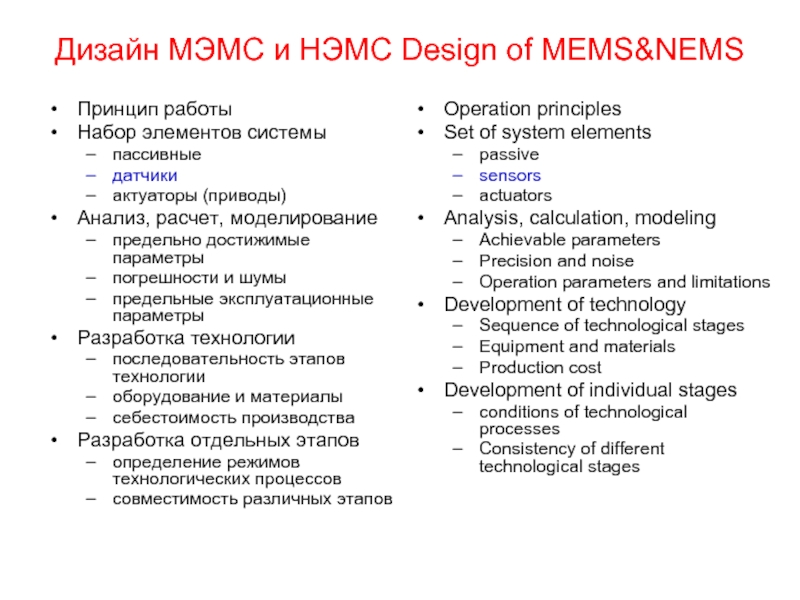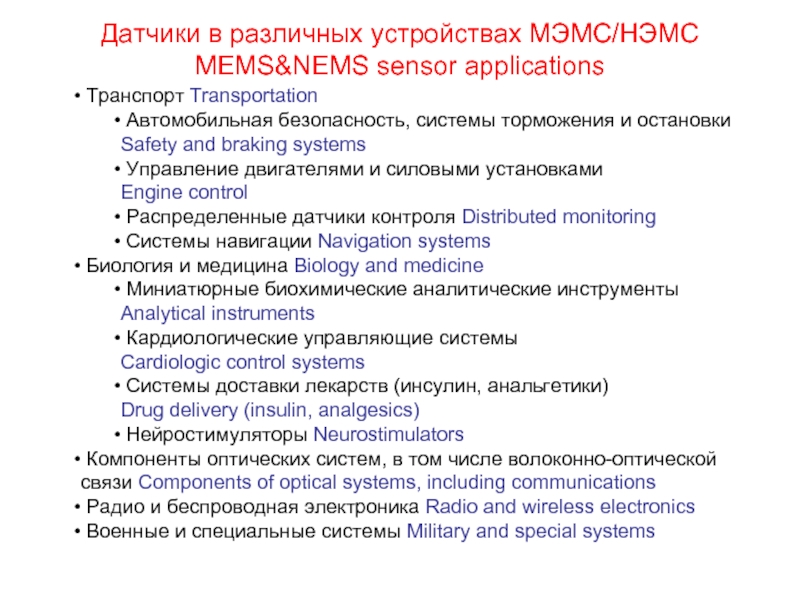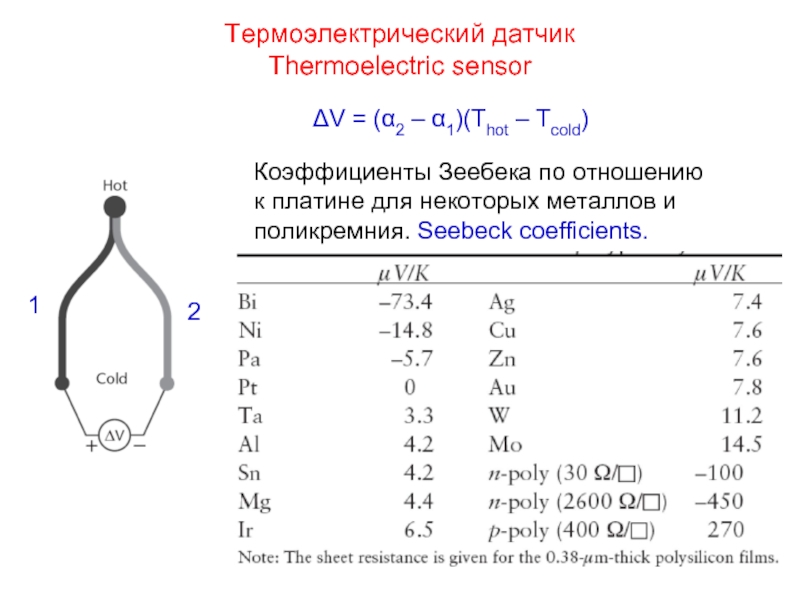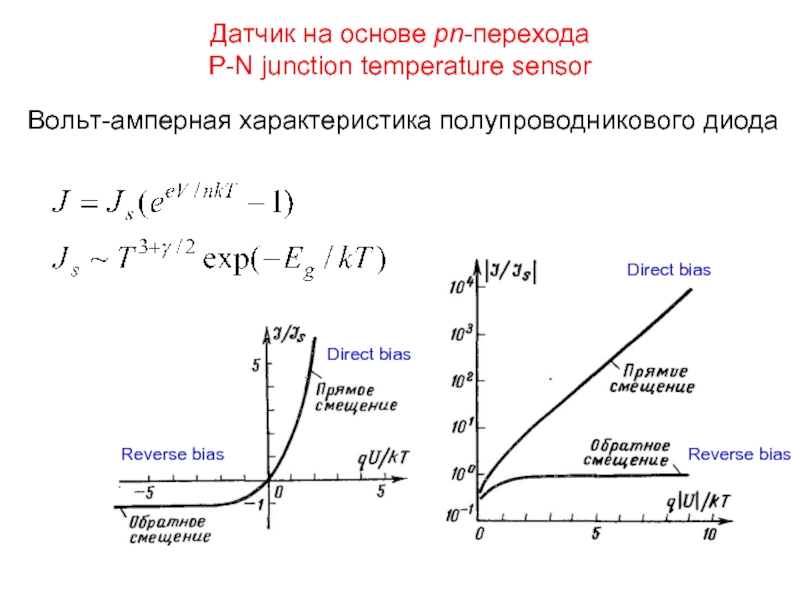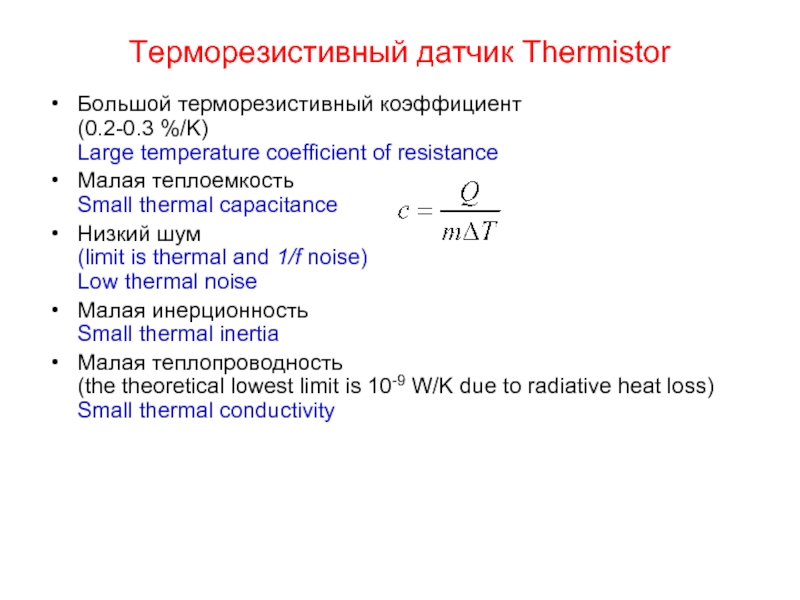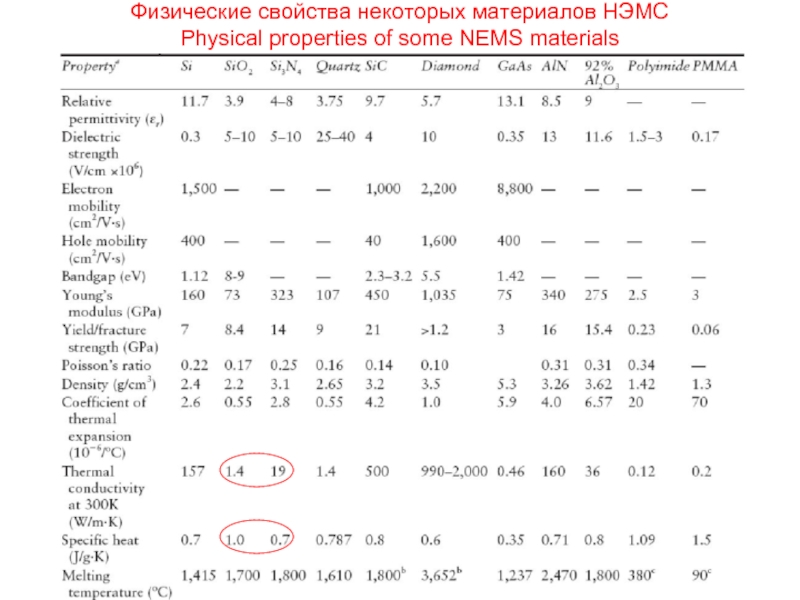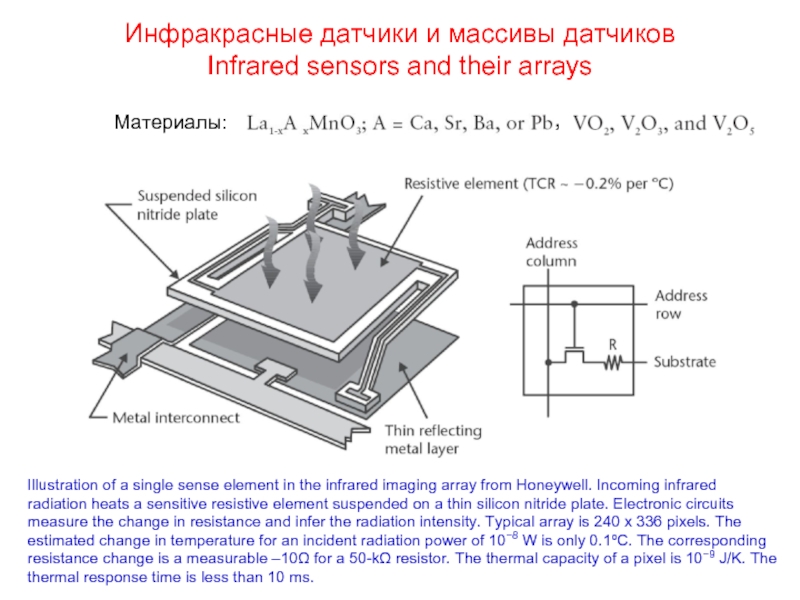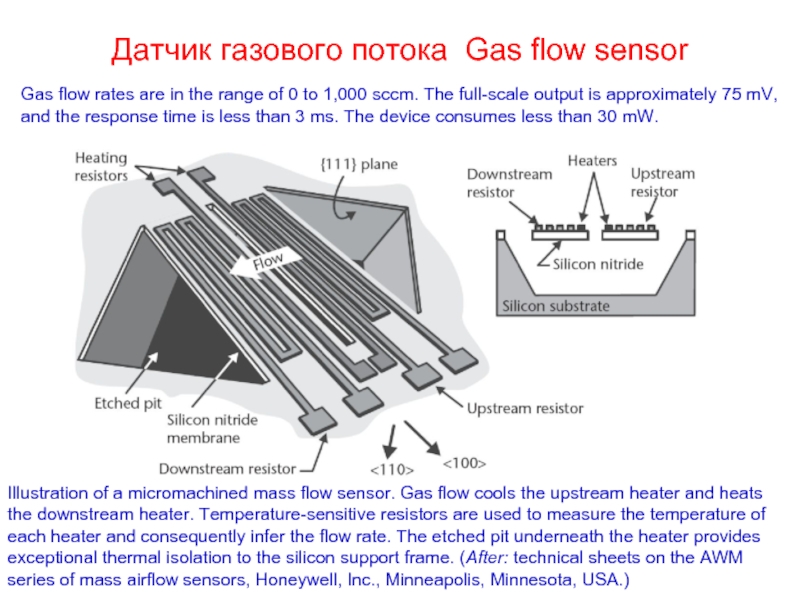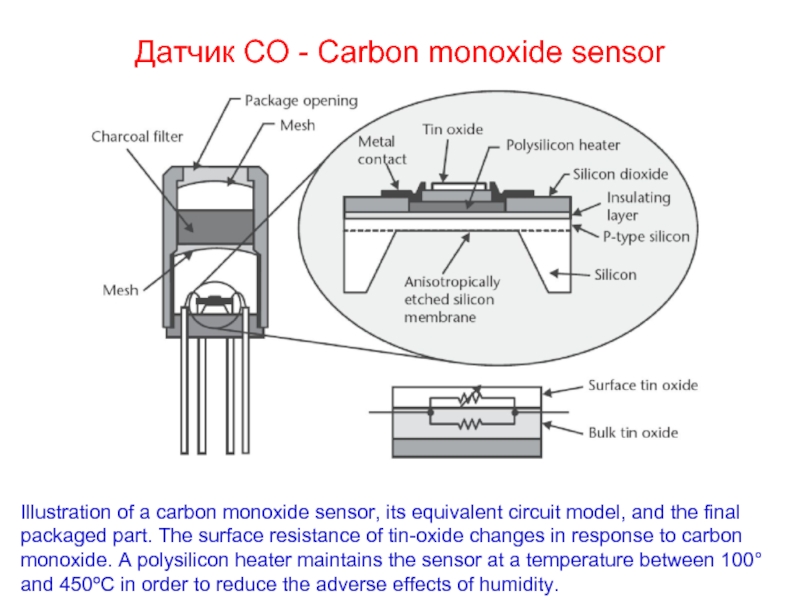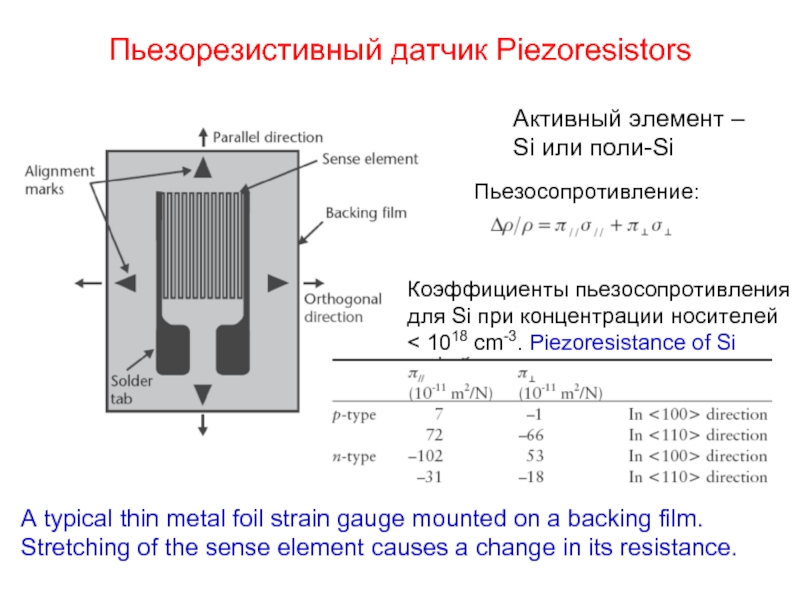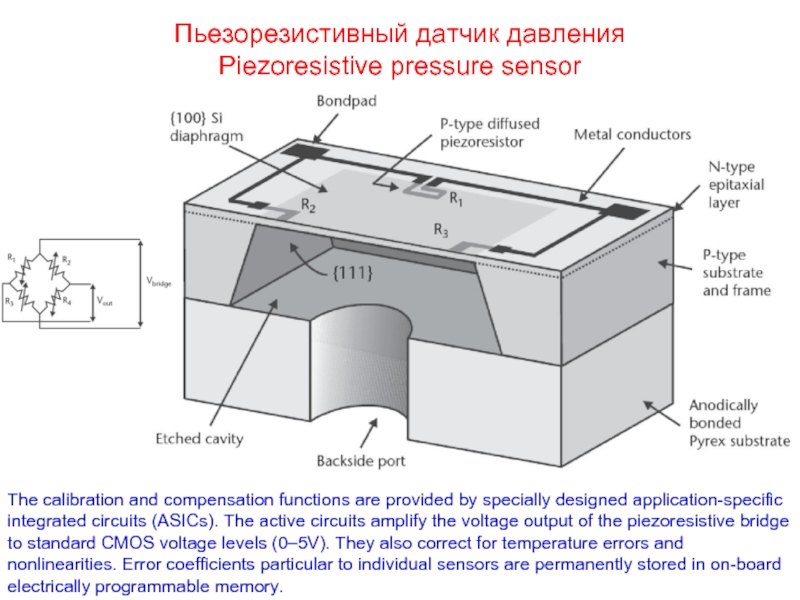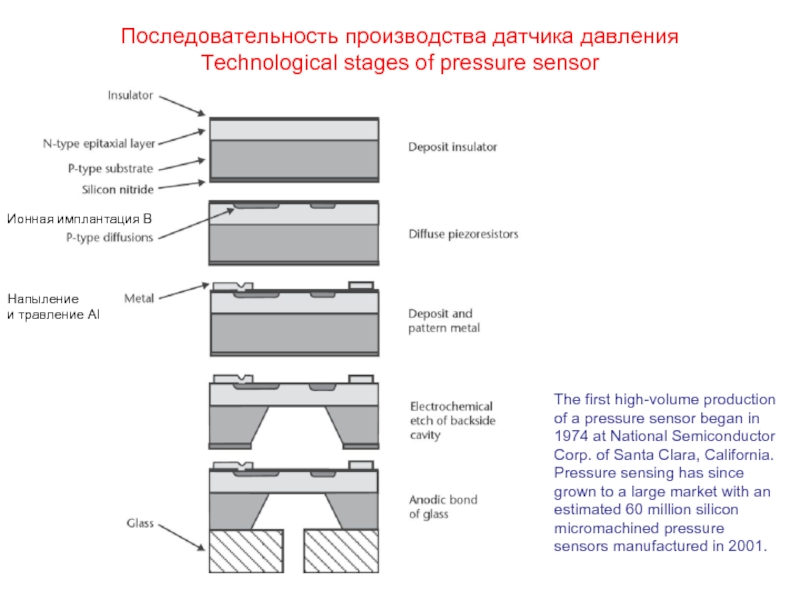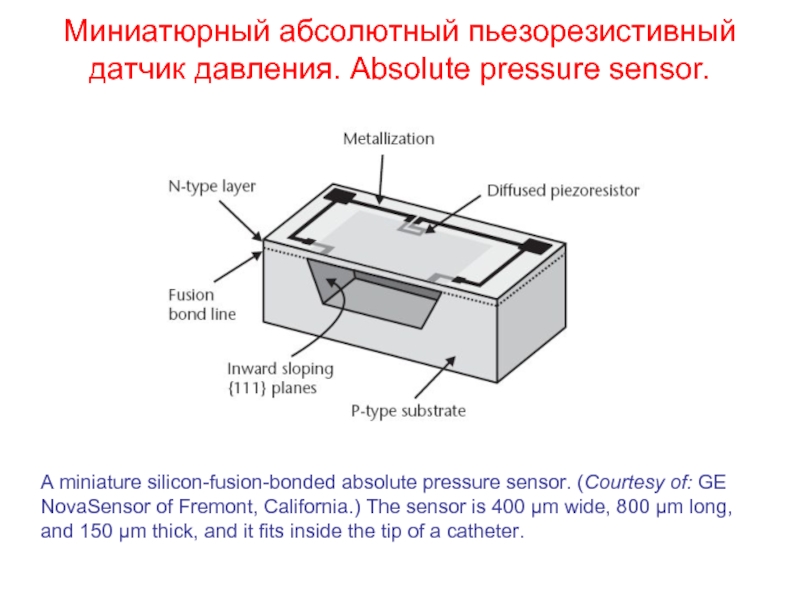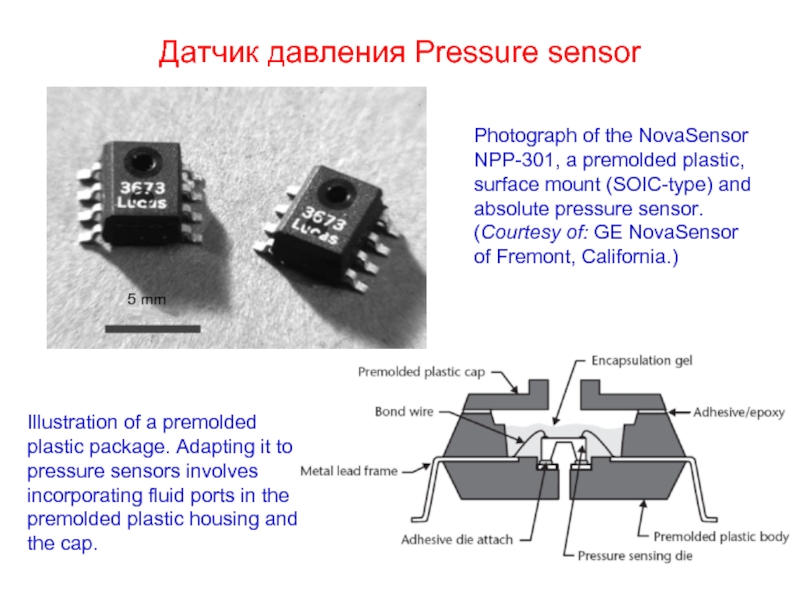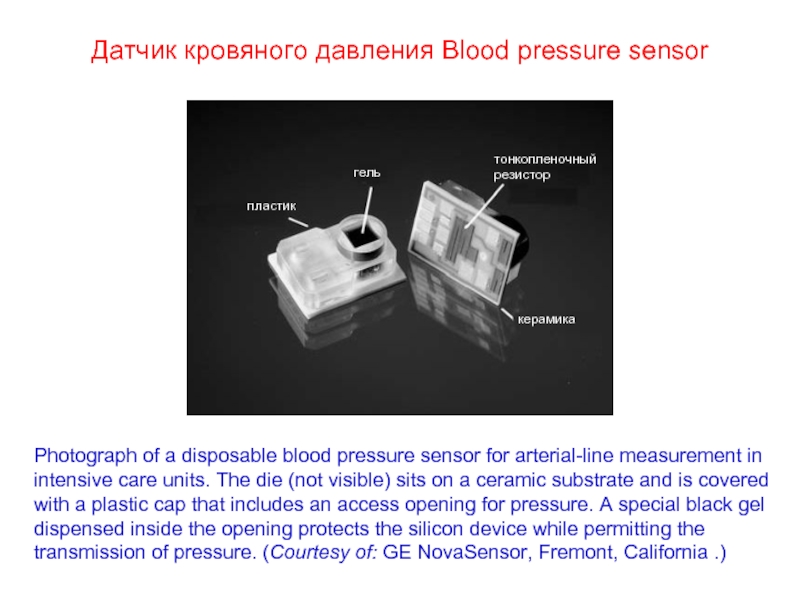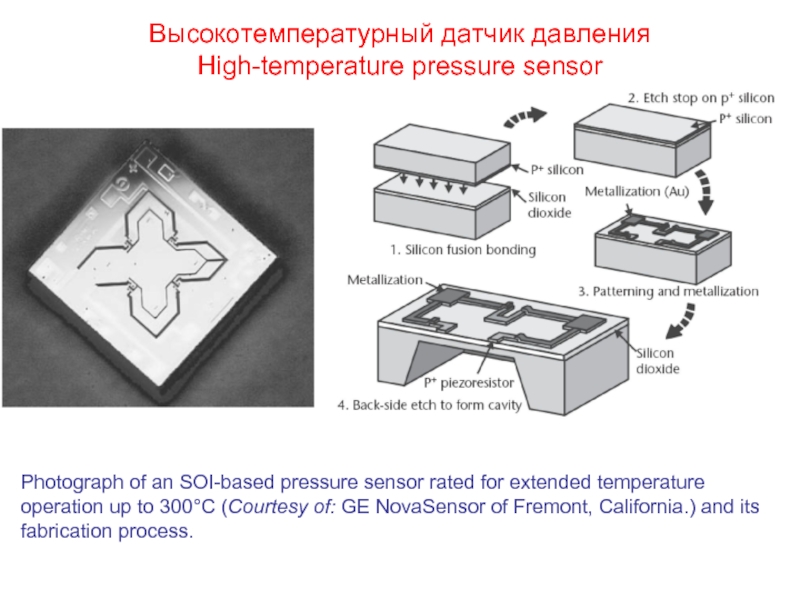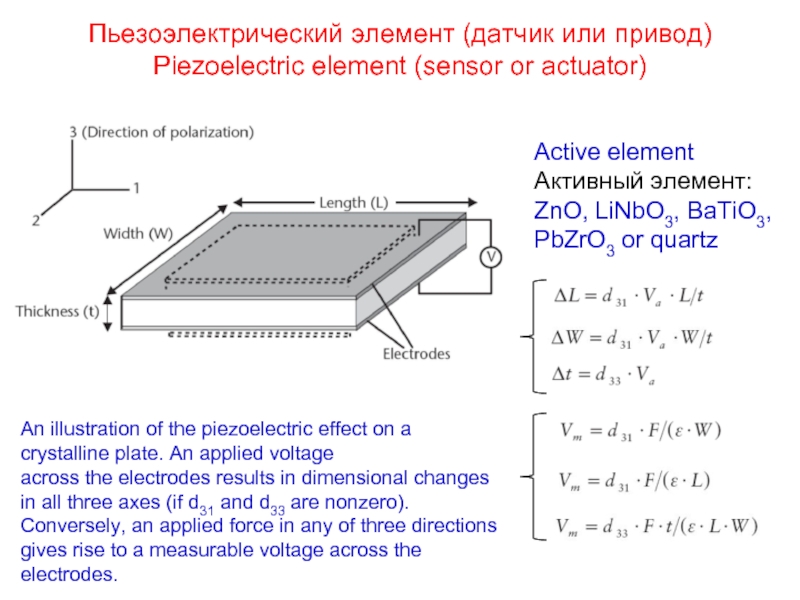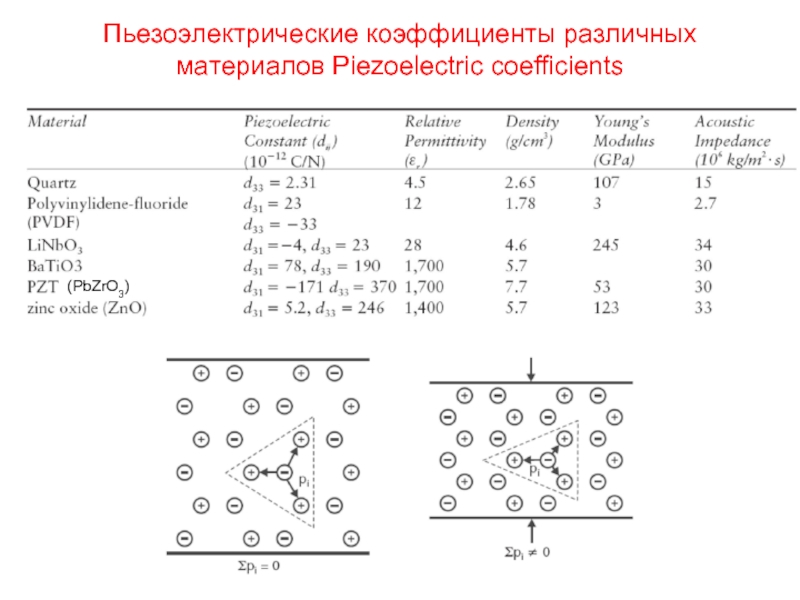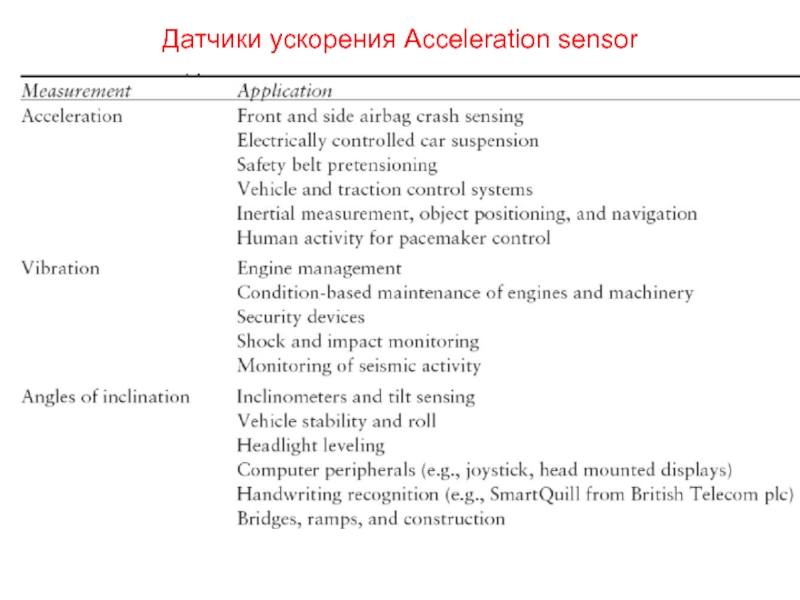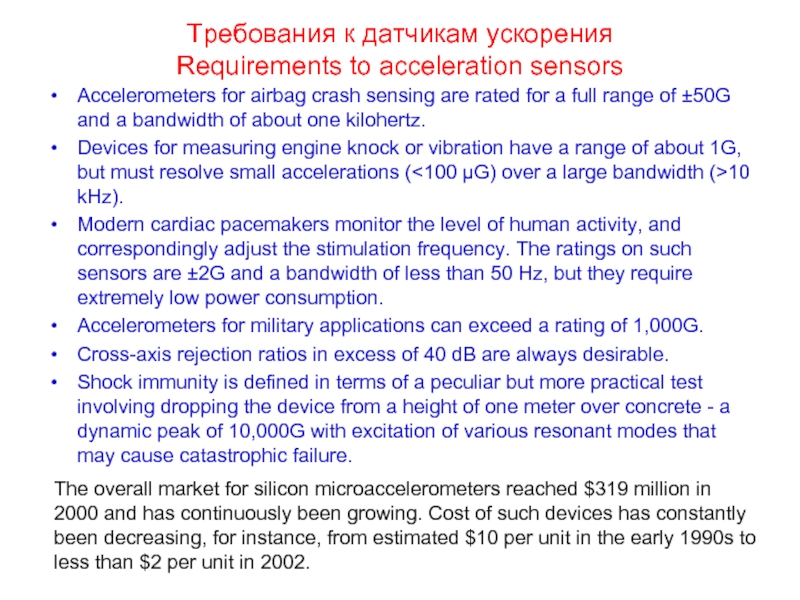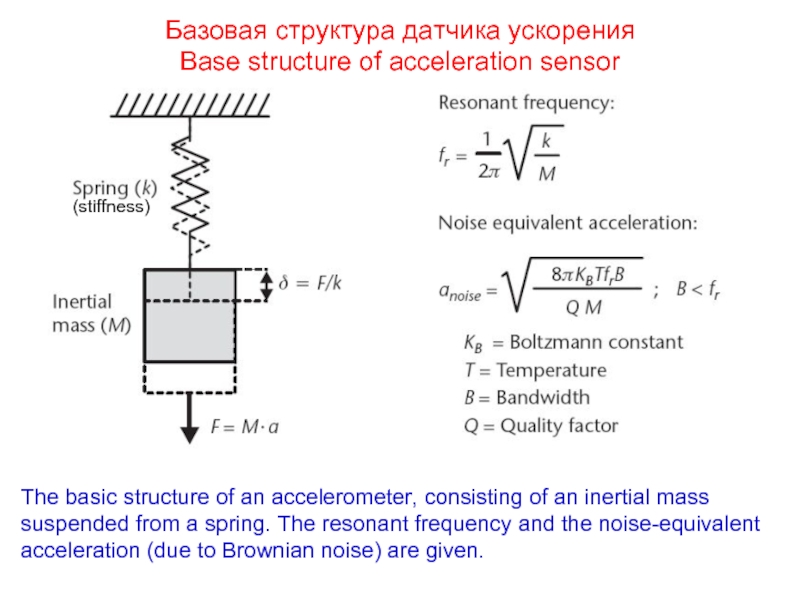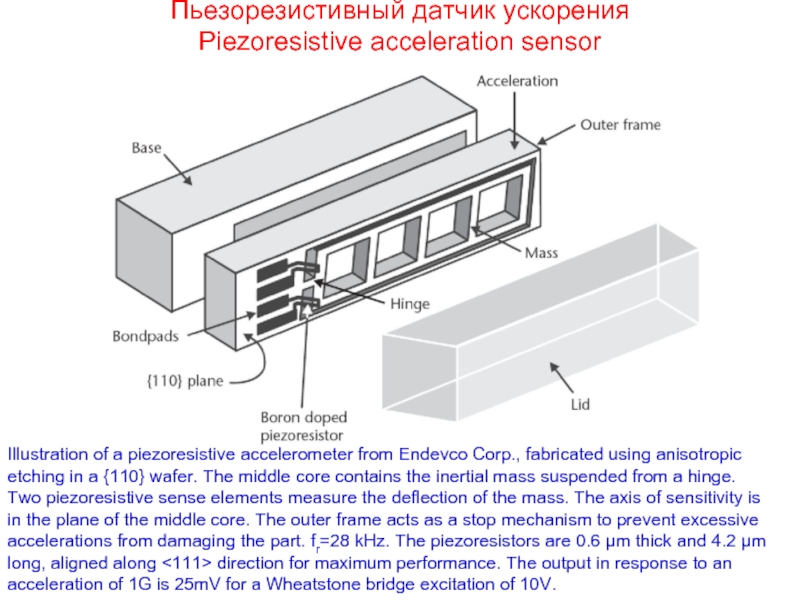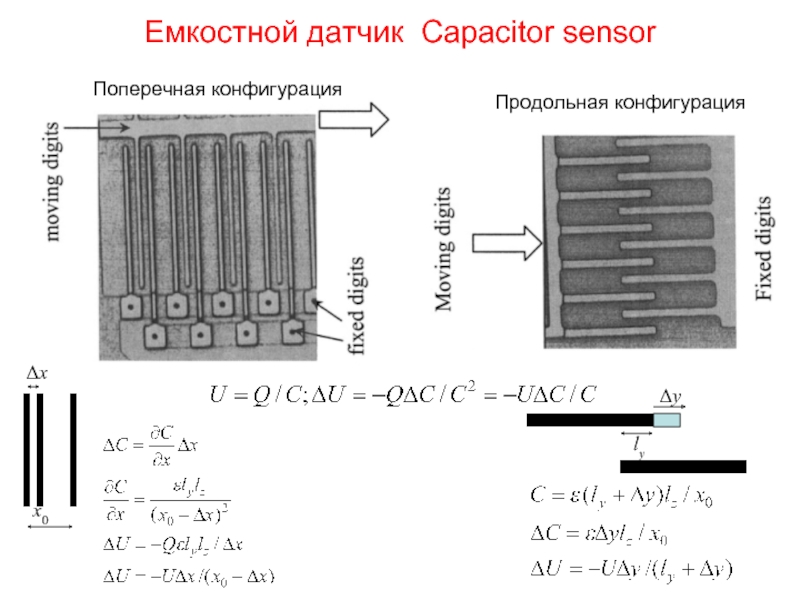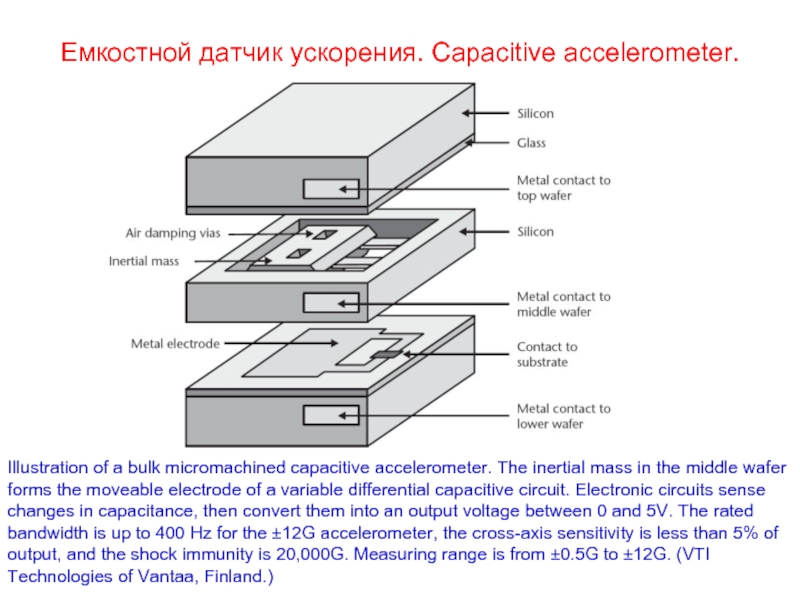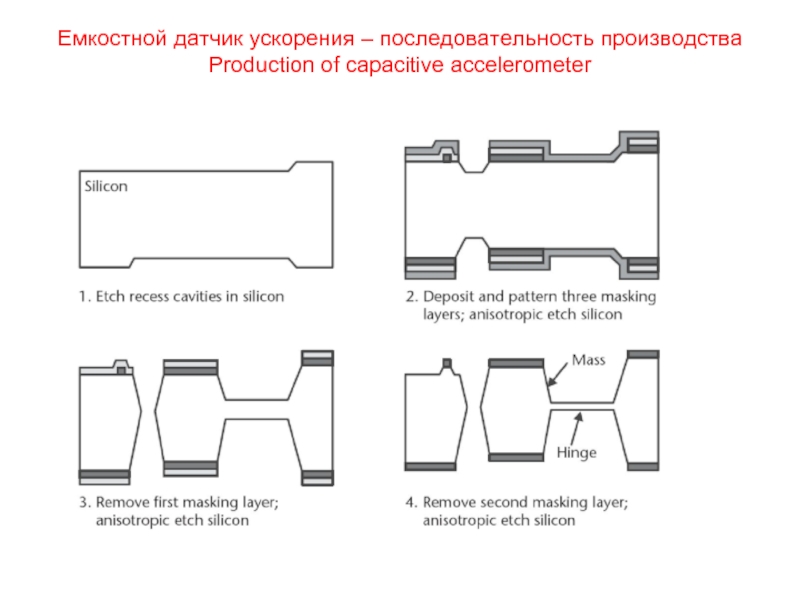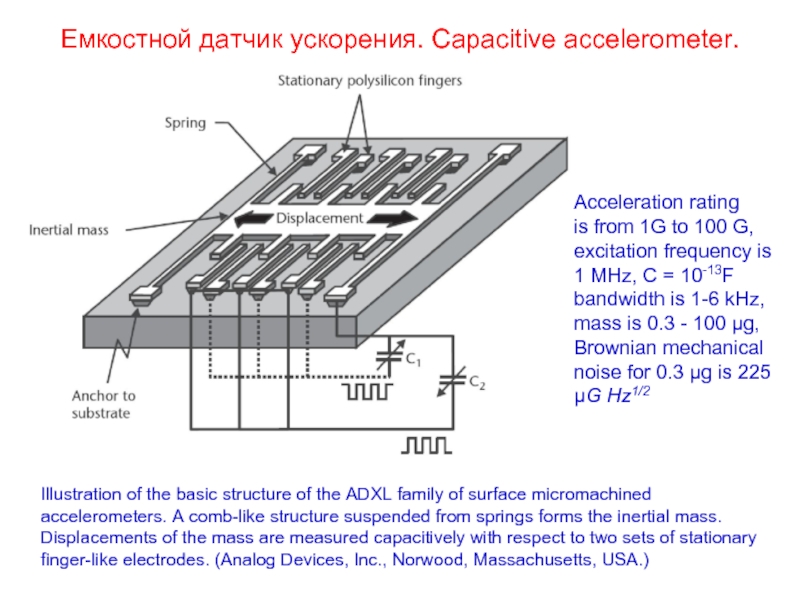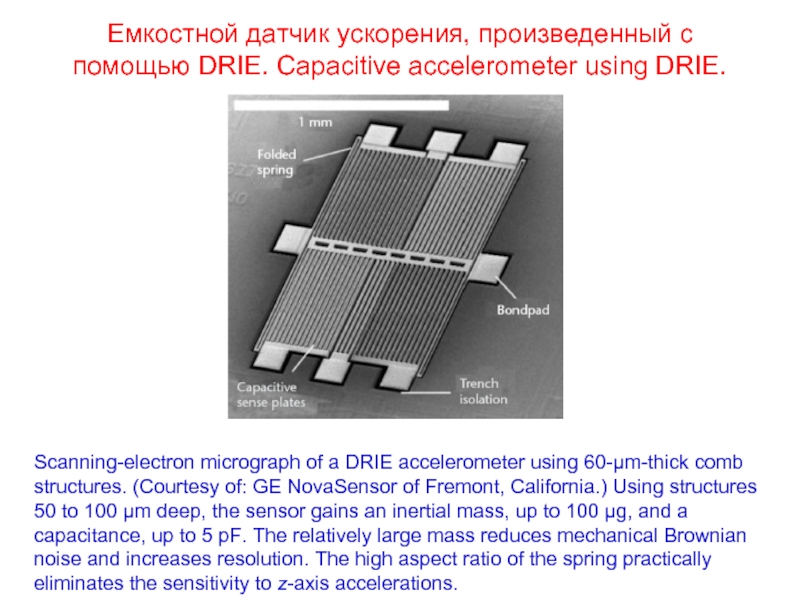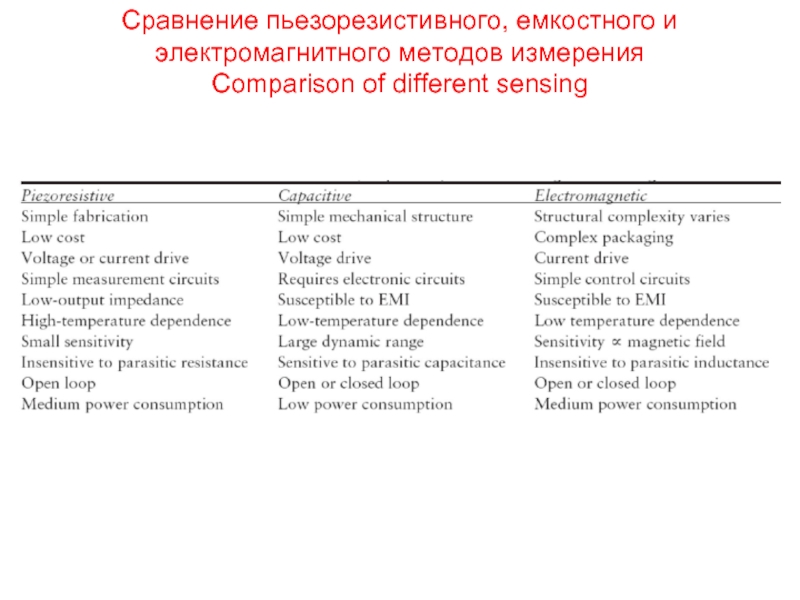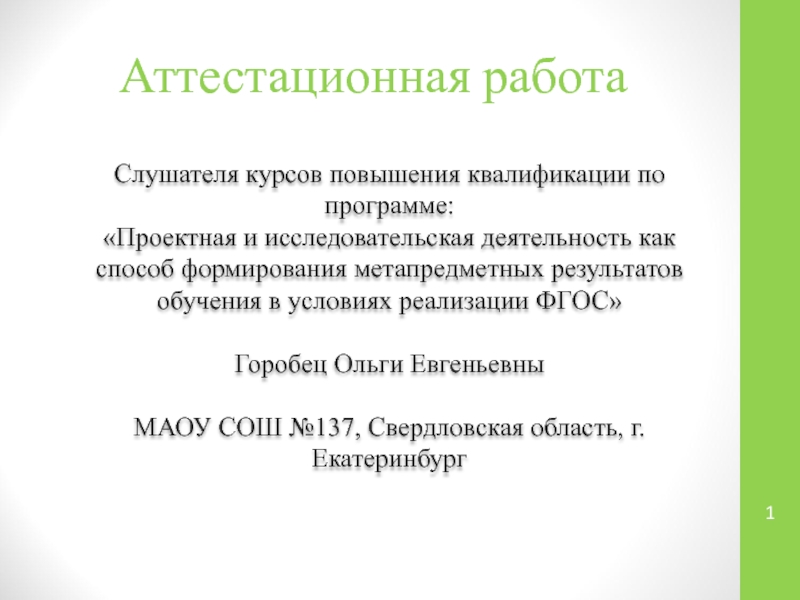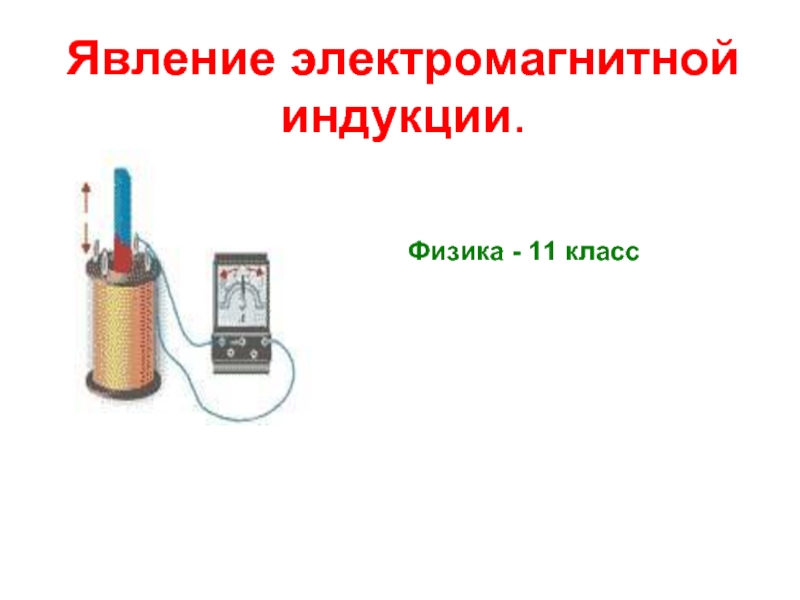- Главная
- Разное
- Дизайн
- Бизнес и предпринимательство
- Аналитика
- Образование
- Развлечения
- Красота и здоровье
- Финансы
- Государство
- Путешествия
- Спорт
- Недвижимость
- Армия
- Графика
- Культурология
- Еда и кулинария
- Лингвистика
- Английский язык
- Астрономия
- Алгебра
- Биология
- География
- Детские презентации
- Информатика
- История
- Литература
- Маркетинг
- Математика
- Медицина
- Менеджмент
- Музыка
- МХК
- Немецкий язык
- ОБЖ
- Обществознание
- Окружающий мир
- Педагогика
- Русский язык
- Технология
- Физика
- Философия
- Химия
- Шаблоны, картинки для презентаций
- Экология
- Экономика
- Юриспруденция
МЭМС и НЭМС датчики презентация
Содержание
- 1. МЭМС и НЭМС датчики
- 2. Дизайн МЭМС и НЭМС Design of MEMS&NEMS
- 3. Датчики в различных устройствах МЭМС/НЭМС MEMS&NEMS sensor
- 4. Термоэлектрический датчик Thermoelectric sensor Коэффициенты Зеебека по
- 5. Датчик на основе pn-перехода P-N junction temperature
- 6. Терморезистивный датчик Thermistor Большой терморезистивный коэффициент
- 7. Физические свойства некоторых материалов НЭМС Physical properties of some NEMS materials
- 8. Инфракрасные датчики и массивы датчиков Infrared sensors
- 9. Датчик газового потока Gas flow sensor Illustration
- 10. Датчик СО - Carbon monoxide sensor Illustration
- 11. Пьезорезистивный датчик Piezoresistors A typical thin metal
- 12. Пьезорезистивный датчик давления Piezoresistive pressure sensor
- 13. Последовательность производства датчика давления Technological stages of
- 14. Миниатюрный абсолютный пьезорезистивный датчик давления. Absolute pressure
- 15. Photograph of the NovaSensor NPP-301, a premolded
- 16. Photograph of a disposable blood pressure sensor
- 17. Высокотемпературный датчик давления High-temperature pressure sensor
- 18. Пьезоэлектрический элемент (датчик или привод) Piezoelectric element
- 19. Пьезоэлектрические коэффициенты различных материалов Piezoelectric coefficients (PbZrO3)
- 20. Датчики ускорения Acceleration sensor
- 21. Требования к датчикам ускорения Requirements to
- 22. Базовая структура датчика ускорения Base structure
- 23. Пьезорезистивный датчик ускорения Piezoresistive acceleration sensor Illustration
- 24. Емкостной датчик Capacitor sensor Поперечная конфигурация Продольная конфигурация x0 Δx Δy ly
- 25. Емкостной датчик ускорения. Capacitive accelerometer. Illustration of
- 26. Емкостной датчик ускорения – последовательность производства Production of capacitive accelerometer
- 27. Емкостной датчик ускорения. Capacitive accelerometer. Illustration of
- 28. Емкостной датчик ускорения, произведенный с помощью DRIE.
- 29. Сравнение пьезорезистивного, емкостного и электромагнитного методов измерения Comparison of different sensing
- 30. To be continued
- 31. Домашнее задание ...
Слайд 1Наномеханика
Nanomechanics of materials and systems
Lecture 13
MEMS and NEMS sensors
МЭМС и
Слайд 2Дизайн МЭМС и НЭМС Design of MEMS&NEMS
Принцип работы
Набор элементов системы
пассивные
датчики
актуаторы
Анализ, расчет, моделирование
предельно достижимые параметры
погрешности и шумы
предельные эксплуатационные параметры
Разработка технологии
последовательность этапов технологии
оборудование и материалы
себестоимость производства
Разработка отдельных этапов
определение режимов технологических процессов
совместимость различных этапов
Operation principles
Set of system elements
passive
sensors
actuators
Analysis, calculation, modeling
Achievable parameters
Precision and noise
Operation parameters and limitations
Development of technology
Sequence of technological stages
Equipment and materials
Production cost
Development of individual stages
conditions of technological processes
Consistency of different technological stages
Слайд 3Датчики в различных устройствах МЭМС/НЭМС
MEMS&NEMS sensor applications
Транспорт Transportation
Автомобильная безопасность,
Управление двигателями и силовыми установками Engine control
Распределенные датчики контроля Distributed monitoring
Системы навигации Navigation systems
Биология и медицина Biology and medicine
Миниатюрные биохимические аналитические инструменты Analytical instruments
Кардиологические управляющие системы Cardiologic control systems
Системы доставки лекарств (инсулин, анальгетики) Drug delivery (insulin, analgesics)
Нейростимуляторы Neurostimulators
Компоненты оптических систем, в том числе волоконно-оптической связи Components of optical systems, including communications
Радио и беспроводная электроника Radio and wireless electronics
Военные и специальные системы Military and special systems
Слайд 4Термоэлектрический датчик
Thermoelectric sensor
Коэффициенты Зеебека по отношению к платине для некоторых металлов
ΔV = (α2 – α1)(Thot – Tcold)
1
2
Слайд 5Датчик на основе pn-перехода
P-N junction temperature sensor
Вольт-амперная характеристика полупроводникового диода
Direct bias
Direct
Reverse bias
Reverse bias
Слайд 6Терморезистивный датчик Thermistor
Большой терморезистивный коэффициент
(0.2-0.3 %/K)
Large temperature coefficient of resistance
Малая
Низкий шум (limit is thermal and 1/f noise) Low thermal noise
Малая инерционность Small thermal inertia
Малая теплопроводность (the theoretical lowest limit is 10-9 W/K due to radiative heat loss) Small thermal conductivity
Слайд 8Инфракрасные датчики и массивы датчиков
Infrared sensors and their arrays
Illustration of a
Материалы:
,
Слайд 9Датчик газового потока Gas flow sensor
Illustration of a micromachined mass flow
Gas flow rates are in the range of 0 to 1,000 sccm. The full-scale output is approximately 75 mV, and the response time is less than 3 ms. The device consumes less than 30 mW.
Слайд 10Датчик СО - Carbon monoxide sensor
Illustration of a carbon monoxide sensor,
Слайд 11Пьезорезистивный датчик Piezoresistors
A typical thin metal foil strain gauge mounted on
Активный элемент –
Si или поли-Si
Коэффициенты пьезосопротивления для Si при концентрации носителей < 1018 cm-3. Piezoresistance of Si
Пьезосопротивление:
Слайд 12Пьезорезистивный датчик давления
Piezoresistive pressure sensor
The calibration and compensation functions are
Слайд 13Последовательность производства датчика давления
Technological stages of pressure sensor
The first high-volume production
Ионная имплантация В
Напыление
и травление Al
Слайд 14Миниатюрный абсолютный пьезорезистивный датчик давления. Absolute pressure sensor.
A miniature silicon-fusion-bonded absolute
NovaSensor of Fremont, California.) The sensor is 400 μm wide, 800 μm long, and 150 μm thick, and it fits inside the tip of a catheter.
Слайд 15Photograph of the NovaSensor NPP-301, a premolded plastic, surface mount (SOIC-type)
Illustration of a premolded plastic package. Adapting it to pressure sensors involves incorporating fluid ports in the premolded plastic housing and the cap.
5 mm
Датчик давления Pressure sensor
Слайд 16Photograph of a disposable blood pressure sensor for arterial-line measurement in
intensive
пластик
гель
тонкопленочный
резистор
керамика
Датчик кровяного давления Blood pressure sensor
Слайд 17Высокотемпературный датчик давления
High-temperature pressure sensor
Photograph of an SOI-based pressure sensor
operation up to 300°C (Courtesy of: GE NovaSensor of Fremont, California.) and its fabrication process.
Слайд 18Пьезоэлектрический элемент (датчик или привод)
Piezoelectric element (sensor or actuator)
An illustration of
across the electrodes results in dimensional changes in all three axes (if d31 and d33 are nonzero). Conversely, an applied force in any of three directions gives rise to a measurable voltage across the electrodes.
Active element
Активный элемент:
ZnO, LiNbO3, BaTiO3, PbZrO3 or quartz
Слайд 21Требования к датчикам ускорения
Requirements to acceleration sensors
Accelerometers for airbag crash
Devices for measuring engine knock or vibration have a range of about 1G, but must resolve small accelerations (<100 μG) over a large bandwidth (>10 kHz).
Modern cardiac pacemakers monitor the level of human activity, and correspondingly adjust the stimulation frequency. The ratings on such sensors are ±2G and a bandwidth of less than 50 Hz, but they require extremely low power consumption.
Accelerometers for military applications can exceed a rating of 1,000G.
Cross-axis rejection ratios in excess of 40 dB are always desirable.
Shock immunity is defined in terms of a peculiar but more practical test involving dropping the device from a height of one meter over concrete - a dynamic peak of 10,000G with excitation of various resonant modes that may cause catastrophic failure.
The overall market for silicon microaccelerometers reached $319 million in 2000 and has continuously been growing. Cost of such devices has constantly been decreasing, for instance, from estimated $10 per unit in the early 1990s to less than $2 per unit in 2002.
Слайд 22Базовая структура датчика ускорения
Base structure of acceleration sensor
The basic structure
(stiffness)
Слайд 23Пьезорезистивный датчик ускорения
Piezoresistive acceleration sensor
Illustration of a piezoresistive accelerometer from Endevco
Слайд 25Емкостной датчик ускорения. Capacitive accelerometer.
Illustration of a bulk micromachined capacitive accelerometer.
Слайд 26Емкостной датчик ускорения – последовательность производства
Production of capacitive accelerometer
Слайд 27Емкостной датчик ускорения. Capacitive accelerometer.
Illustration of the basic structure of the
Acceleration rating
is from 1G to 100 G,
excitation frequency is 1 MHz, C = 10-13F bandwidth is 1-6 kHz,
mass is 0.3 - 100 μg,
Brownian mechanical noise for 0.3 μg is 225 μG Hz1/2
Слайд 28Емкостной датчик ускорения, произведенный с помощью DRIE. Capacitive accelerometer using DRIE.
Scanning-electron
50 to 100 μm deep, the sensor gains an inertial mass, up to 100 μg, and a capacitance, up to 5 pF. The relatively large mass reduces mechanical Brownian noise and increases resolution. The high aspect ratio of the spring practically eliminates the sensitivity to z-axis accelerations.
